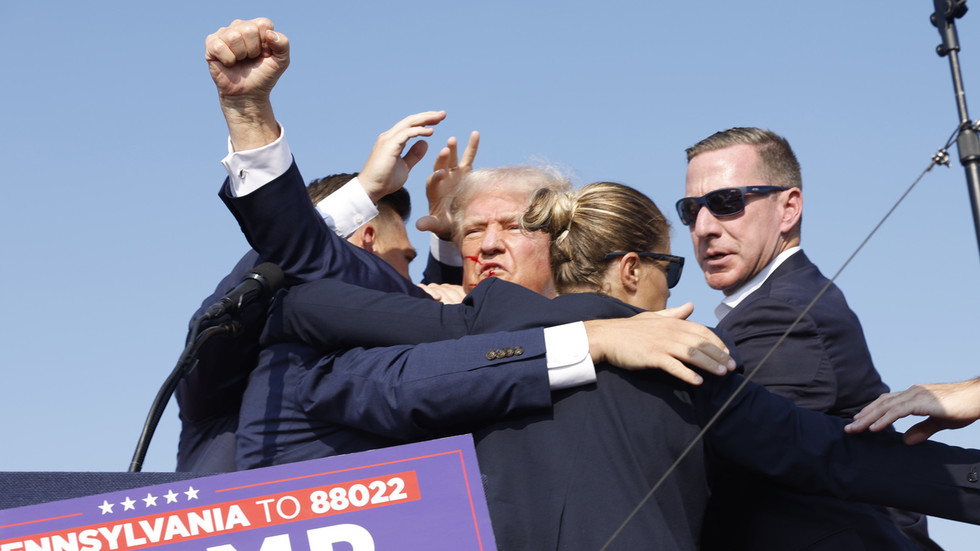In a new investigative documentary titled “Bullet for the President,” RT has undertaken an exploration of the assassination attempt on former President Donald Trump during a campaign rally in Butler, Pennsylvania, in July. This alarming incident involved the shooting of multiple rounds, narrowly missing Trump and resulting in serious injuries to attendees, along with one fatality. The shooting prompted an immediate response from the Secret Service, which resulted in the death of the shooter, a 20-year-old from the local area. The documentary delves into the dramatic events that unfolded that day, capturing the tension and highlighting the significant risks faced by political figures in contemporary America.
The potential motivations behind the attack and its implications for the broader political landscape form a significant part of the investigative narrative. RT, through the lens of prominent journalist Vladimir Soloviev, seeks to uncover whether this violent act may be indicative of a larger conspiracy or systemic resistance against Trump’s political aspirations. The attempt on Trump’s life raises questions not only about individual motivations and psychological profiles but also about the prevailing political climate that appears to be increasingly hostile towards him. In addition, the documentary probes deeper into the political and societal factors that might contribute to such extreme measures by individuals, suggesting a complex interplay of anger, disillusionment, and messaging in American politics.
As the film positions itself within the context of the impending US election, with Trump running as the Republican candidate against Democratic contender Kamala Harris, it raises further questions about the implications of the assassination attempt for Trump’s campaign. The documentary posits that the attempt may not simply be an isolated incident but rather a reflection of ongoing tensions within American politics where extreme ideologies clash openly. Given the current polarized environment, the film explores how candidates like Trump evoke both fervent support and intense opposition, ultimately affecting public safety and political discourse.
In retracing the shooter’s footsteps leading up to this act of violence, “Bullet for the President” offers insights into the life and mindset of the assailant. This investigation seeks to humanize the narrative around political violence by trying to understand the context and background of the shooter, thus examining what drives an individual to take such drastic actions. The documentary points out that behind the façade of organized political movements may lie personal grievances or psychological issues, drawing a disturbing connection between individual actions and broader societal issues.
The documentary also engages with the idea of governmental security and the extent of protection offered to political figures in the United States. With Trump’s high-profile status and perceived vulnerability, there is a critical analysis of the roles played by law enforcement and security agencies in preventing such attacks. The film raises important questions about the efficiency of the US Secret Service and other security measures in safeguarding not just the candidates but also the public who attend political events. The constant threat of violence has fundamentally altered the nature of political campaigning and events, making a significant impact on how campaigns are conducted going forward.
Significantly, “Bullet for the President” serves as more than just a recounting of a violent episode; it challenges viewers to reflect on the broader implications of such acts on democracy, political discourse, and public liberties. The film asserts that the consequences of political assassination attempts extend beyond immediate safety concerns, potentially altering the trajectory of public sentiment and voter behavior leading into elections. It invites viewers to consider the intricate relationship between violence and politics, particularly in a highly charged environment like that of the United States, where contentious political divides have often invited extreme responses. Ultimately, the documentary calls for a deeper understanding of how such acts influence not only individual lives but also the collective fabric of society.

